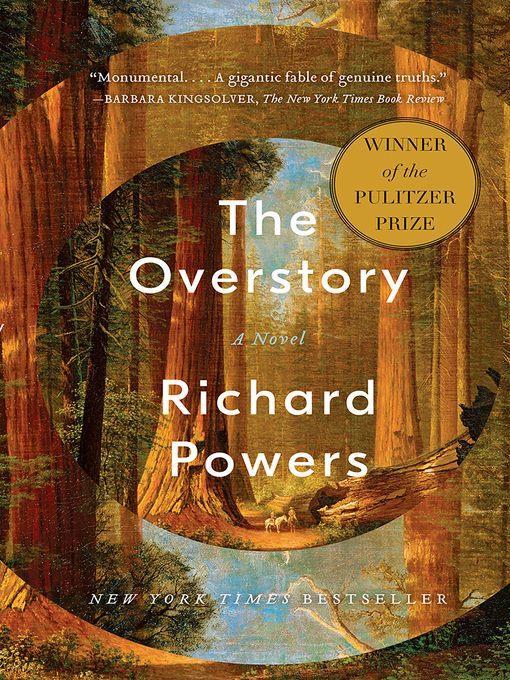
The Overstory
A Novel
کتاب های مرتبط
- اطلاعات
- نقد و بررسی
- دیدگاه کاربران
نقد و بررسی

November 15, 2017
A National Book Award winner, Pulitzer Prize finalist, and three-time National Book Critics Circle finalist, big-issues author Powers here focuses on the environment, particularly on trees and the recent Timber Wars centered in the Pacific Northwest, as a disparate group of characters are brought together to save the last of the country's virgin forests. Among them: a scientist who learns that trees can communicate, a Vietnam War air force loadmaster saved after he's shot from the sky by falling into a banyan tree, and a partied-out young woman sent back from the dead. With a six-city tour.
Copyright 2017 Library Journal, LLC Used with permission.

February 1, 2018
Powers' (Orfeo, 2014, etc.) 12th novel is a masterpiece of operatic proportions, involving nine central characters and more than half a century of American life.In this work, Powers takes on the subject of nature, or our relationship to nature, as filtered through the lens of environmental activism, although at its heart the book is after more existential concerns. As is the case with much of Powers' fiction, it takes shape slowly--first in a pastiche of narratives establishing the characters (a psychologist, an undergraduate who died briefly but was revived, a paraplegic computer game designer, a homeless vet), and then in the kaleidoscopic ways these individuals come together and break apart. "We all travel the Milky Way together, trees and men," Powers writes, quoting the naturalist John Muir. "In every walk with nature one receives far more than he seeks." The idea is important because what Powers means to explore is a sense of how we become who we are, individually and collectively, and our responsibility to the planet and to ourselves. Nick, for instance, continues a project begun by his grandfather to take repeated photographs of a single chestnut tree, "one a month for seventy-six years." Pat, a visionary botanist, discovers how trees communicate with one another only to be discredited and then, a generation later, reaffirmed. What links the characters is survival--the survival of both trees and human beings. The bulk of the action unfolds during the timber wars of the late 1990s, as the characters coalesce on the Pacific coast to save old-growth sequoia from logging concerns. For Powers, however, political or environmental activism becomes a filter through which to consider the connectedness of all things--not only the human lives he portrays in often painfully intricate dimensions, but also the biosphere, both virtual and natural. "The world starts here," Powers insists. "This is the merest beginning. Life can do anything. You have no idea."A magnificent achievement: a novel that is, by turns, both optimistic and fatalistic, idealistic without being naive.
COPYRIGHT(2018) Kirkus Reviews, ALL RIGHTS RESERVED.

February 19, 2018
Occupying the same thematic terrain as Annie Proulx’s Barkskins, the latest from Powers (Orfeo) is an impassioned but unsatisfying paean to the wonder of trees. Set primarily on the West Coast, the story revolves around nine characters, separated by age and geography, whose “lives have long been connected, deep underground.” Among these are a wheelchair-bound computer game designer; a scientist who uncovers the forest’s hidden communication systems; a psychologist studying the personality types of environmental activists; and a young woman who, after being electrocuted, hears voices urging her to save old-growth forests from logging. All are seduced by the majesty of trees and express their arboreal love in different ways: through scholarship, activism, art, and even violent resistance. Some of the prose soars, as when a redwood trunk shoots upward in a “russet, leathery apotheosis,” while some lands with a thud: “We’re cashing in a billion years of planetary savings bonds and blowing it on assorted bling.” Powers’s best works are thrilling accounts of characters blossoming as they pursue their intellectual passions; here, few of the earnest figures come alive on the page. While it teems with people, information, and ideas, the novel feels curiously barren.

























دیدگاه کاربران